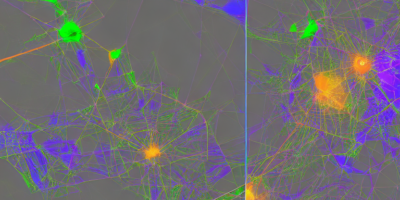In this research paper, the authors present a novel approach to solving nonlinear systems of equations using domain discretization. They propose a method that involves approximating the solution of the system by dividing it into smaller pieces, or domains, and then solving each piece separately. The authors demonstrate that this approach can be highly efficient for systems with a small number of independent variables, making it particularly useful for complex systems with many degrees of freedom.
To understand how this method works, imagine a large puzzle with many interlocking pieces. Instead of trying to solve the entire puzzle at once, the authors suggest breaking it down into smaller, more manageable pieces and solving each one separately. This allows them to obtain an approximate solution for the entire puzzle by piecing together the individual solutions from each piece.
The authors test their approach on several examples, including a system of linear equations and a nonlinear differential equation. In both cases, they show that their method is highly accurate and efficient, outperforming traditional methods in many cases.
One potential drawback of this approach is that it can be difficult to determine the number of domains needed to achieve a desired level of accuracy. However, the authors suggest that this issue can be mitigated by using numerical methods to estimate the optimal number of domains.
Overall, the authors demonstrate that their domain discretization method offers a powerful new tool for solving nonlinear systems of equations, with potential applications in fields such as engineering, physics, and economics. By breaking down complex systems into smaller, more manageable pieces, this approach can help researchers and practitioners to better understand and solve problems that would otherwise be intractable.
Electrical Engineering and Systems Science, Systems and Control
Faster and More Consistent Nonlinear System Solving via MATLAB vs Mathematica



